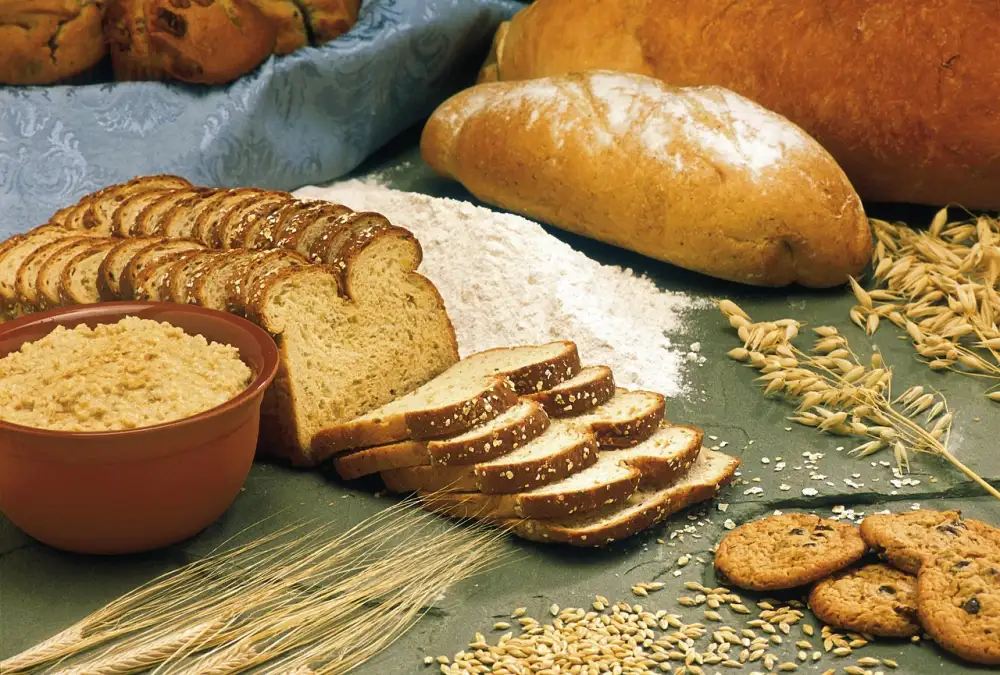Soft Foods to Eat: Nourishing and Gentle Options for Dental Issues and Swallowing Difficulties

- oft Foods to Eat: A Guide for Easy and Nourishing Meals
- Importance of soft foods for individuals with dental issues or swallowing difficulties
- How soft foods can provide necessary nutrients while being gentle on the teeth and throat
- Benefits of Soft Foods
- Easier chewing and swallowing
- Reduced risk of choking or discomfort
- Suitable for individuals with dental problems, oral surgeries, or throat conditions
- Soft Food Suggestions
- Soups and broths: Nourishing and easy to consume
- Mashed vegetables: Smooth and packed with vitamins
- Yogurt and smoothies: Creamy and refreshing options
- Soft fruits: Gentle on the teeth and rich in fiber
- Cooked grains and pasta: Soft and easily digestible
- Soft proteins: Tender meats, fish, or tofu options
- Tips for Preparing Soft Foods
- Cooking techniques to soften foods
- Blending or pureeing for smoother textures
- Adding sauces or gravies for extra moisture and flavor
- Nutritional Considerations
- Ensuring a balanced diet with soft foods
- Incorporating protein, fiber, vitamins, and minerals
- Consulting a healthcare professional or nutritionist for personalized advice
- Emphasizing the importance of soft foods for individuals with specific dietary needs
- Encouraging creativity in preparing delicious and nourishing soft meals
oft Foods to Eat: A Guide for Easy and Nourishing Meals
Soft Foods to Eat: A Guide for Easy and Nourishing Meals
Soft foods play a crucial role in the diets of individuals with dental issues or swallowing difficulties. These foods provide necessary nutrients while being gentle on the teeth and throat. They are easier to chew and swallow, reducing the risk of choking or discomfort. Soft foods are particularly suitable for those with dental problems, oral surgeries, or throat conditions.
Here are some suggestions for soft foods that are both nourishing and delicious. Soups and broths are not only comforting but also easy to consume. Mashed vegetables offer a smooth texture while packing a punch of vitamins. Yogurt and smoothies provide creamy and refreshing options. Soft fruits are gentle on the teeth and rich in fiber. Cooked grains and pasta are soft and easily digestible. Soft proteins like tender meats, fish, or tofu can be included as well.
When preparing soft foods, consider cooking techniques that soften the ingredients such as boiling, steaming, or slow-cooking. Blending or pureeing can further enhance the texture for easier consumption. Adding sauces or gravies can provide extra moisture and flavor.
While enjoying soft foods, it is important to ensure a balanced diet by incorporating protein, fiber, vitamins, and minerals. Consulting a healthcare professional or nutritionist can help tailor a personalized plan based on individual needs.
In conclusion, soft foods are essential for individuals with specific dietary needs due to dental issues or swallowing difficulties. They offer nourishment while being gentle on the teeth and throat. Get creative in preparing delicious meals that cater to these requirements while consulting professionals for personalized advice.
Soft Foods to Eat: A Guide for Easy and Nourishing Meals
For individuals with dental issues or swallowing difficulties, finding suitable foods that are both nourishing and gentle can be a challenge. Soft foods play a crucial role in ensuring these individuals receive the necessary nutrients while being easy on their teeth and throat.
Chewing and swallowing can become difficult or painful for those with dental problems, oral surgeries, or throat conditions. Soft foods offer numerous benefits by providing easier chewing and swallowing, reducing the risk of choking or discomfort. They are specially designed to be gentle on the teeth and throat, making them ideal for individuals facing these challenges.
In this guide, we will explore the benefits of soft foods and provide a variety of suggestions to help you create delicious and nourishing meals. Whether you are recovering from oral surgery or dealing with chronic dental issues, incorporating soft foods into your diet can make a significant difference in your overall well-being.
Importance of soft foods for individuals with dental issues or swallowing difficulties
Soft foods are of utmost importance for individuals with dental issues or swallowing difficulties. These conditions can make it challenging to consume regular solid foods, leading to discomfort and potential choking hazards. Soft foods provide a solution by offering nourishment while being gentle on the teeth and throat. They allow individuals to maintain a balanced diet and ensure they receive the necessary nutrients without causing further discomfort or complications.
How soft foods can provide necessary nutrients while being gentle on the teeth and throat
Soft foods are not only easy to chew and swallow, but they can also provide essential nutrients while being gentle on the teeth and throat. They are especially beneficial for individuals with dental issues or swallowing difficulties. Soft foods such as soups, mashed vegetables, yogurt, and soft fruits are packed with vitamins and minerals that can be easily absorbed by the body. By choosing soft foods, individuals can ensure that they receive the necessary nutrients without causing any discomfort or further damage to their teeth or throat.
Benefits of Soft Foods
Soft foods offer several benefits for individuals with dental issues or swallowing difficulties. Firstly, they make chewing and swallowing easier, reducing the risk of discomfort or choking. This is especially important for those with sensitive teeth, missing teeth, or oral surgeries. Secondly, soft foods are suitable for individuals with throat conditions that may make it difficult to swallow solid foods. By choosing soft options, they can still receive the necessary nutrients without straining their throat muscles. Overall, soft foods provide a gentle and nourishing alternative for those who need it.
Easier chewing and swallowing
Soft foods are beneficial for individuals with dental issues or swallowing difficulties because they make chewing and swallowing easier. These foods have a softer texture, which reduces the need for extensive chewing and minimizes the risk of discomfort or choking. By choosing soft foods, individuals can still enjoy a variety of nutritious meals without straining their teeth or throat.
Reduced risk of choking or discomfort
Soft foods can significantly reduce the risk of choking or discomfort for individuals with dental issues or swallowing difficulties. These foods are easier to chew and swallow, minimizing the chances of food getting stuck in the throat or causing discomfort. By opting for softer textures, such as soups, mashed vegetables, or cooked grains, individuals can enjoy their meals without worrying about potential choking hazards. It is crucial to prioritize safety and comfort when selecting foods for those with specific dietary needs.
Suitable for individuals with dental problems, oral surgeries, or throat conditions
Soft foods are particularly suitable for individuals with dental problems, oral surgeries, or throat conditions. These individuals may have difficulty chewing or swallowing regular foods, and soft foods provide a gentle alternative. Whether it's a temporary issue due to oral surgery or a chronic condition, such as sensitive teeth or throat inflammation, soft foods can help alleviate discomfort and ensure proper nutrition. By choosing soft foods that are easy to chew and swallow, individuals can still enjoy delicious meals while avoiding any potential pain or complications.
Soft Food Suggestions
When it comes to soft foods, there are plenty of options to choose from that are both nourishing and easy to consume. Here are some suggestions to help you create delicious meals:
1. Soups and broths: These are not only comforting but also provide essential nutrients. Opt for smooth-textured soups like tomato soup or chicken broth.
2. Mashed vegetables: Cooked vegetables can be easily mashed into a smooth consistency, making them gentle on the teeth and packed with vitamins. Try mashed sweet potatoes or cauliflower.
3. Yogurt and smoothies: Creamy yogurt or blended fruit smoothies are not only refreshing but also provide important probiotics and vitamins. Add in some soft fruits for added flavor.
4. Soft fruits: Fruits like bananas, avocados, and ripe peaches are naturally soft and easy to chew. They also contain fiber, which is important for digestion.
5. Cooked grains and pasta: Rice, quinoa, or pasta cooked until tender can be easily consumed by those with dental issues or swallowing difficulties.
6. Soft proteins: Tender meats like chicken or fish can be cooked until they are moist and easy to chew. Tofu is another great option for those following a vegetarian or vegan diet.
By incorporating these soft food suggestions into your meals, you can ensure that you're getting the necessary nutrients while being gentle on your teeth and throat. Remember to consult a healthcare professional or nutritionist for personalized advice based on your individual needs and conditions.
Soups and broths: Nourishing and easy to consume
Soups and broths are excellent options for individuals with dental issues or swallowing difficulties. They provide nourishment while being easy to consume. These liquid-based meals can be packed with nutrients by including vegetables, proteins, and grains. The soft texture of soups and broths makes them gentle on the teeth and throat, reducing discomfort during eating. Additionally, they are easily digestible, making them suitable for those with sensitive digestive systems. Experiment with different flavors and ingredients to create delicious and nourishing soups that cater to your specific dietary needs.
Mashed vegetables: Smooth and packed with vitamins
Mashed vegetables are a fantastic option for those with dental issues or swallowing difficulties. They provide a smooth texture that is easy to consume and packed with essential vitamins and minerals. Whether it's carrots, peas, or potatoes, mashing vegetables creates a soft consistency that requires minimal chewing. This makes them ideal for individuals who struggle with biting or have sensitive teeth. Additionally, mashed vegetables retain their nutritional value, ensuring that you receive the necessary vitamins and fiber for a balanced diet. So whip up some creamy mashed vegetables and enjoy a nourishing meal that is gentle on your teeth and throat.
Yogurt and smoothies: Creamy and refreshing options
Yogurt and smoothies are excellent options for those with dental issues or swallowing difficulties. They are not only creamy and refreshing but also packed with nutrients. Yogurt is soft and easy to eat, providing protein, calcium, and probiotics for gut health. Smoothies can be made with a variety of fruits, vegetables, and yogurt or milk for added creaminess. They are a great way to incorporate vitamins, minerals, and fiber into your diet. Enjoy these delicious options while nourishing your body!
Soft fruits: Gentle on the teeth and rich in fiber
Soft fruits are an excellent option for individuals with dental issues or swallowing difficulties. They are gentle on the teeth and provide a good source of fiber. Fruits like bananas, ripe peaches, and avocados can be easily mashed or pureed to create a smooth texture. Berries such as strawberries and blueberries can be softened by cooking or blending. These soft fruits not only add variety to the diet but also offer essential nutrients and antioxidants. Incorporating soft fruits into meals or snacks ensures a nourishing and enjoyable eating experience.
Cooked grains and pasta: Soft and easily digestible
Cooked grains and pasta are excellent options for individuals with dental issues or swallowing difficulties. These soft foods are easy to chew and digest, making them gentle on the teeth and throat. Whether it's rice, quinoa, or pasta, cooking these grains until they are tender can make them easier to consume. Adding a flavorful sauce or broth can also enhance the taste and provide extra moisture. With cooked grains and pasta, individuals can enjoy a variety of dishes while still getting the necessary nutrients for their overall health.
Soft proteins: Tender meats, fish, or tofu options
Soft proteins are an essential component of a soft food diet. They provide necessary nutrients and can be easily consumed by individuals with dental issues or swallowing difficulties. Tender meats such as chicken, turkey, or beef can be cooked until they are very tender and easy to chew. Fish, such as salmon or cod, can also be baked or steamed to a soft and flaky texture. For those who prefer plant-based options, tofu is a great source of protein that can be cooked until it is soft and easy to swallow. These soft protein options ensure that individuals with specific dietary needs can still enjoy nourishing meals while maintaining their oral health.
Tips for Preparing Soft Foods
When preparing soft foods, there are several techniques you can use to ensure a smooth and easy-to-eat texture. Cooking methods such as boiling, steaming, or slow-cooking can help soften vegetables, meats, and grains. For even smoother textures, consider blending or pureeing the ingredients. This can be done using a blender or food processor to create a creamy consistency. Adding sauces or gravies to your soft foods can provide extra moisture and flavor. Be creative with your seasonings and spices to enhance the taste of your meals. Remember to adjust the thickness of your dishes based on individual preferences and swallowing abilities.
Cooking techniques to soften foods
Cooking techniques can help soften foods, making them easier to chew and swallow for individuals with dental issues or swallowing difficulties. Boiling or simmering vegetables and meats can make them tender and more manageable. Steaming is another gentle method that retains nutrients while softening the texture. Slow cooking or braising meats can also result in tender and easily digestible dishes. These cooking techniques can transform harder foods into softer, more palatable options for those with specific dietary needs.
Blending or pureeing for smoother textures
Blending or pureeing is a great technique to create smoother textures for soft foods. This method is especially useful for individuals with difficulty chewing or swallowing. By blending or pureeing ingredients, you can transform solid foods into a more easily manageable consistency. This not only makes it easier to consume but also ensures that the nutrients are still intact. Whether it's vegetables, fruits, or proteins, blending or pureeing can help create delicious and nourishing meals that are gentle on the teeth and throat.
Adding sauces or gravies for extra moisture and flavor
Adding sauces or gravies to soft foods can not only enhance their flavor but also provide extra moisture, making them easier to swallow. Creamy sauces like cheese sauce or béchamel can be drizzled over mashed vegetables or cooked grains, adding a rich and indulgent taste. Gravies made from meat drippings or vegetable broth can be poured over tender meats or tofu, creating a savory and moist texture. Experimenting with different sauces and gravies can add variety to soft meals while ensuring they remain nourishing and enjoyable.
Nutritional Considerations
When following a soft food diet, it's important to ensure that you're still getting all the necessary nutrients for your body. While soft foods may be easier to consume, they can sometimes lack certain essential elements. To maintain a balanced diet, it's crucial to incorporate protein, fiber, vitamins, and minerals into your meals.
Protein is essential for tissue repair and growth. Soft protein options include tender meats like chicken or fish, as well as tofu for vegetarians or vegans. These options provide the necessary amino acids for maintaining muscle strength.
Fiber is important for digestion and maintaining bowel regularity. While many high-fiber foods are typically crunchy or tough, there are still soft options available. Soft fruits like bananas and cooked vegetables can provide fiber while being gentle on the teeth and throat.
Vitamins and minerals are crucial for overall health. Incorporating a variety of soft fruits and vegetables can help ensure you're getting a range of vitamins such as vitamin C from citrus fruits or vitamin A from sweet potatoes.
It's always advisable to consult with a healthcare professional or nutritionist who can provide personalized advice based on your specific dietary needs and conditions. They can help you create a meal plan that meets your nutritional requirements while still being gentle on your teeth and throat.
By considering these nutritional aspects, you can enjoy delicious and nourishing soft meals that support your overall health and well-being.
Ensuring a balanced diet with soft foods
Ensuring a balanced diet with soft foods is essential for individuals with dental issues or swallowing difficulties. While it may be tempting to rely on easily accessible processed options, it is important to prioritize nutrient-rich choices. Incorporating a variety of soft fruits, vegetables, proteins, and grains can help meet the body's nutritional needs. It is also advisable to consult a healthcare professional or nutritionist for personalized advice on specific dietary requirements.
Incorporating protein, fiber, vitamins, and minerals
When planning soft meals, it is important to ensure that they are nutritionally balanced. Incorporating protein, fiber, vitamins, and minerals is essential for overall health and well-being. Protein can be obtained from soft meats such as tender chicken or fish, as well as tofu for vegetarians. Adding cooked grains or pasta can provide a good source of fiber. Including mashed vegetables and soft fruits can help meet the daily requirement of vitamins and minerals. It is advisable to consult a healthcare professional or nutritionist for personalized advice on specific dietary needs.
Consulting a healthcare professional or nutritionist for personalized advice
It is important to consult a healthcare professional or nutritionist for personalized advice when it comes to incorporating soft foods into your diet. They can provide guidance based on your specific needs and conditions, ensuring that you are getting the necessary nutrients while also addressing any dietary restrictions or concerns. Their expertise will help you create a meal plan that is both nourishing and enjoyable.
In conclusion, soft foods play a vital role in providing nourishment and comfort for individuals with dental issues or swallowing difficulties. They offer easier chewing and swallowing, reducing the risk of choking or discomfort. Soft foods are suitable for those with dental problems, oral surgeries, or throat conditions. By incorporating soups, mashed vegetables, yogurt, soft fruits, cooked grains, and tender proteins into our diets, we can ensure a balanced intake of essential nutrients. It is important to consult healthcare professionals or nutritionists for personalized advice on meeting individual dietary needs. Let's embrace creativity in preparing delicious and nourishing soft meals to promote homemade happiness.
Emphasizing the importance of soft foods for individuals with specific dietary needs
Emphasizing the importance of soft foods for individuals with specific dietary needs is crucial. These individuals may have dental issues or swallowing difficulties that make it challenging to consume regular solid foods. Soft foods provide a solution by offering nourishment while being gentle on the teeth and throat. They ensure that individuals with specific dietary needs can still receive the necessary nutrients for their overall health and well-being.
Encouraging creativity in preparing delicious and nourishing soft meals
Encouraging creativity in preparing delicious and nourishing soft meals is key to maintaining variety and enjoyment in a restricted diet. Experiment with different flavors, textures, and seasonings to enhance the taste of soft foods. Try adding herbs, spices, or condiments to soups or purees for an extra kick. Explore different cooking methods like steaming or slow-cooking to retain nutrients and enhance flavors. Don't be afraid to try new ingredients or combinations to keep meals interesting and satisfying.
Published: 09. 01. 2024
Category: Health



